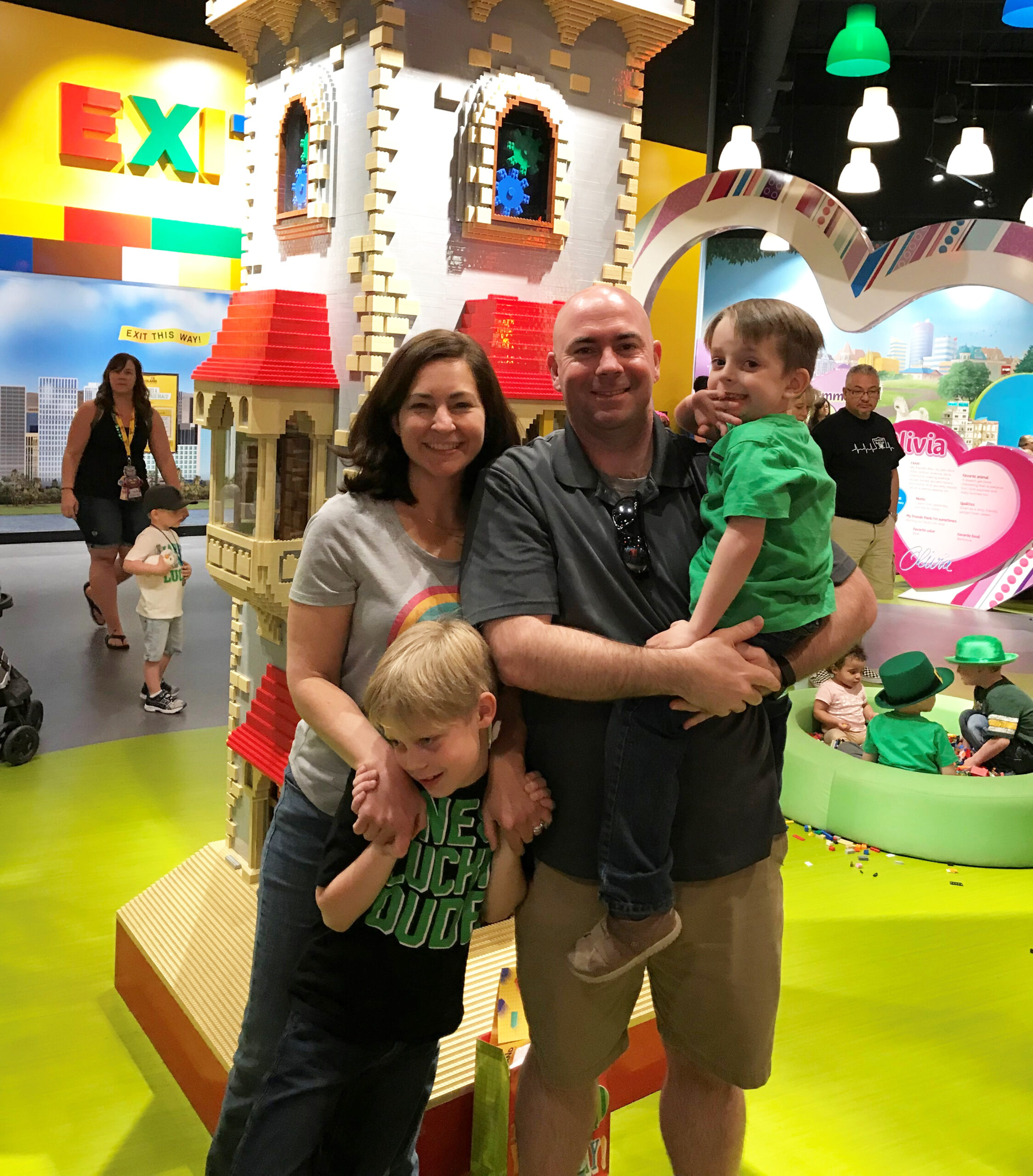When Carey Falter’s oldest son, Ian, was 4, he was diagnosed with autism.
“At the time, we were dealing with an inability to want to eat. He just didn’t want to eat,” she remembers. “We also struggled a lot with him doing what I said, as well as making eye contact and being social. It felt like a lot.”
Ian’s diagnosing physician, Dr. Joseph Gentry, recommended Southwest Autism Research & Resource Center (SARRC).
Even though she lived in Sierra Vista—a good three-hour drive from Phoenix—she called for information.
Finding Help
SARRC’s one-week Intensive Parent Training program (IPT) was a perfect fit. The course was designed for those either local who were unable to do the longer, once-a-week, 12-week course, or for those from out-of-town. The program works with those who have children ages 16 months to 6 years (the 12-week course is offered for ages 6 months to 6 years). During the program, a SARRC clinician works one-on-one with the parent(s) and/or caregivers and child to incorporate evidence-based teaching strategies into parent-child routines and play. The individualized interventions are designed to increase a child’s functional communication skills and decrease challenging behaviors.
Falter drove to Phoenix with Ian and prepared to stay for the week.
“We went into a room and the clinician watched him play and interact and then gave me strategies,” Falter explains. “It was so effective because I had someone right there with me who was coaching me on what I should do and shouldn’t do, and offering alternatives when things weren’t working. It was nice because I read things online but I wasn’t sure when and how far to push my son so to have someone right there to tell me was so nice. And, it gave me the confidence at the end of the week to go home and know I could do this and it would be ok.”
Learning Techniques
Falter learned both Pivotal Response Training (PRT) and Applied Behavior Analysis (ABA) techniques from the clinician, who coached her during the week.
“The first day was a lot of tantrums!” Falter says. “Ian was getting very, very upset [with how we were working with toys] but by Friday was engaging and interacting, making eye contact when we needed it and saying some words. I took the information I learned from the training and applied it into my everyday life.
“The biggest power that I received during that week was the power over my son to say, ‘You listen to what Mommy says.’” After that week I felt like I gained control.”
A Second Son, A Second Program
During that time, Falter had a second son, Patrick. By the time he was 3-years-old, he was labeled moderately at-risk for autism and was having tantrums all day long. Knowing how much the program helped the first time, she once again turned to SARRC.
“I really felt like it was important,” she shares, saying that with the demands of her home and Ian, she felt that it would be best to take herself and Patrick out of their everyday environment and concentrate just on him and interventions.
Once again she packed up the suitcases and made arrangements to stay in Phoenix for the week.
“Patrick was having non-stop tantrums all day long, but by the end of the week, he was down to one tantrum a day. That was profound because again, it gave me control,” Falter says.
One aspect of the IPT program that was different the second time was the new remote training portion, where Falter was given a camera to record several interactions that she sent to her clinician for review.
“I really feel like parents have the greatest opportunity to impact their child’s life, but we as parents are not super people and we need some help. Quality instruction is very hard to find—people who are willing to teach you and work with you and who really know what they are talking about. To me that is key—to work with someone who really knows autism and how to work with it makes all the difference. I think parents really need that.”
Learn more about SARRC's Intensive Parent Training program.

